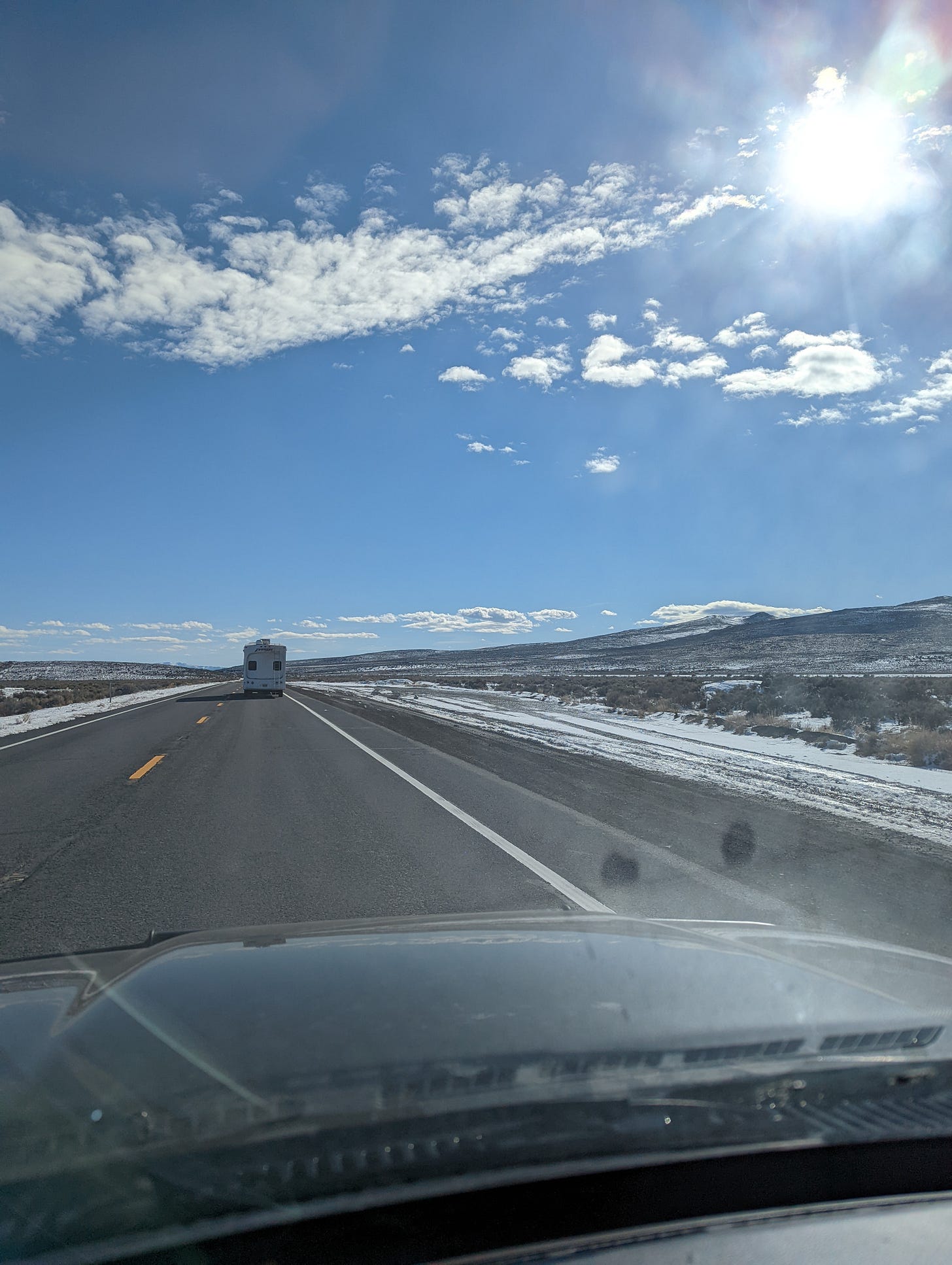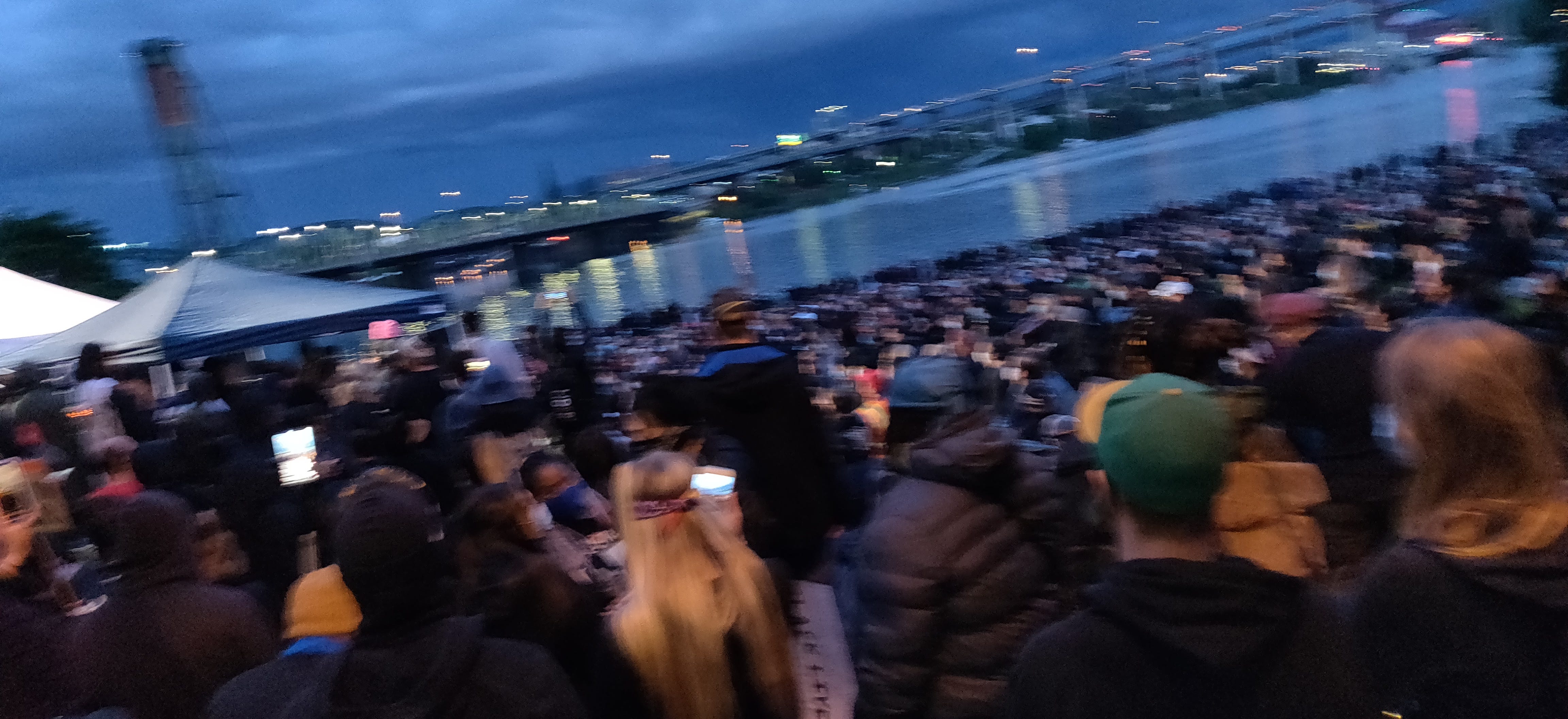Towards Revolution
Revolutions bronze people into characters. They become heroes and villains bonded to their time, their chapter, their revolution.
I don't see people on the side of the road changing a tire anymore. I don't often see a car steaming out the front, a failed radiator stopping the commute or shopping trip. Those were both common occurrences not that many years ago, but something has changed. The engineering of car parts has greatly improved and we have all benefited from it.
We are safer, more prompt, more reliable, and spend less money on vehicle repairs. We can get across town or across the country with less worry
Modern cars tires are so reliable that many new cars do not even have a place to store a spare. There was not a cover of USA Today headline when a tire technologist announced whatever series of incremental improvements got us off the roadside, unable to use that “flat tire” excuse when we arrive late. It was too boring to make the news.
A lot of problems get solved this way. Even in government policy, wonky changes in something like funding incentives can result in lives saved, money preserved, commutes shortened, healthier babies and other improvements that happen in a way that does not make a good news clip or eighth grade history lesson. They don't surface to the minds of the people, even those whose lives are changed by it every day. The world changes course and no one notices.
I knew of a man who developed a new way to preserve topsoil that is used by most American farmers today. I can’t remember his name and you have never heard of him, but he changed American agriculture.
Lately, politics, the act of promoting a future (I would say that is in contrast to policy , the act of changing the future), does not thrive on the language of incremental improvement or difficult-to-explain engineering. Politics instead uses a two-stage rocket of rhetoric. First, it gets off the landing pad with intolerance of the current situation. Then, it promises dramatic, sudden change — transformation.
Revolution.
Ah, revolution. A method of change that really sticks in the brain. Revolutions get chapter headings in history class. A blood-drenched block of time chopped out of the flow of human lives. Revolutions bronze people into characters. They become heroes and villains bonded to their time, their chapter, their revolution.
Political rhetoric turns to the word “revolution” to stir action. It works! Even middle class people with personal security unparalleled in the history of all civilization are excited enough by the idea of joining a revolution that they will contribute money and perhaps even time to a cause.
The excitement, urgency, and immediacy keeps them from reason. They become convinced they are at a breaking point and must break something else to preserve their lifestyle, to repair what is broken. If you keep listening, you are ready to be a revolutionary.
Then you can, in the name of revolution, transgress customs, break laws, risk yourself and your loved ones. You would not be the first stirred to murder by a worthy revolution.
A popular American politician named his organization "Our Revolution."
Even though I shared a good amount of this candidate’s values and policy ideas, I was repulsed by a call to revolution. The idea churns my guts. I turn from it so my mind does not narrow in fear and hunger and fight-or-flight.
The record of a past revolution is a gripping yarn, the possibility of a future one is invigorating like a hot cup of coffee or having a loaded gun pointed at you. Those who have experienced a revolution, whichever side they were on, report blood pouring from victims as violence hacks at the helpless. Survivors remember deprivation, starvation. Killing cold and heat without shelter. I have never experienced any of this and do not want to.
Whether they picked a side or not, witnesses to revolution store the memory wrapped in trauma. They talk of it only when it is important enough for someone to hear what revolution feels like. They are shaken by the memory and do not want to return to revolution.
You know what I don't like about revolution, other than the false conclusion that it is how we transform our lives, our communities, our country? This is it; I don't like that no matter who initiates the revolution, the poor and powerless will suffer and die. They will walk immense distances to be homeless refugees in a place that does not want them. I hate that the wealthy (most of you who are reading this, the vast majority, those with a house with an Internet connection and a computer and a nice warm drink of choice, when I say wealthy I am talking about you even though I acknowledge you are also scared and vulnerable and angry that the world is unjust, you have wealth and stability that is the envy of the world.) fly away, perhaps temporarily slightly less wealthy. Revolution brings suffering upon the people already suffering the most. Often, revolution brings suffering to people in the name of saving them.
There will be a dramatic photo, a tattered flag raised. A good speech. Moments for the history class to discover later. Those who survive will carry shell shock forward, then have to re-enter the hard, undramatic work of politics and policy anyway before the relief they marched and killed for becomes real. Revolution does not even save you from the drudgery of bureaucratic process.
When I heard of an American movement called “Our Revolution,” I pictured dead bodies on the streets in front of my house, not knowing if they are the families of those who agreed with me or those who disagreed.
So, when I can't sort out how to solve a problem, I don't call for revolution. I wonder how we quietly managed to make a better car tire. The body count is lower.
See:
- Mark Twain "The War Prayer"
- John Lennon "Revolution"




